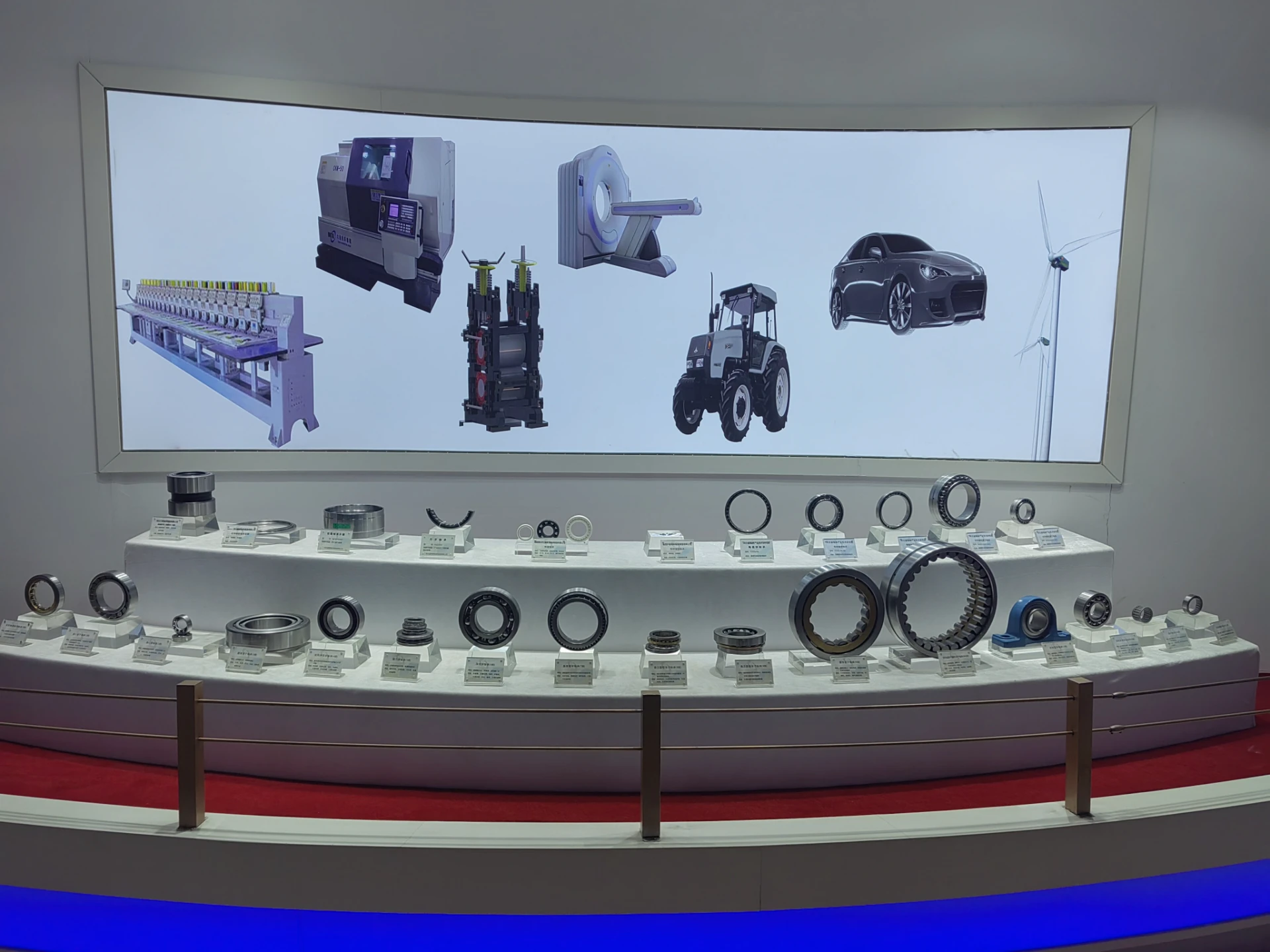
Dec . 16, 2024 14:08 Back to list
Angular Contact Ball Bearings Supplier for Enhanced Performance and Precision Engineering
The Importance of Angular Contact Ball Bearings in Manufacturing
Angular contact ball bearings are pivotal components in various mechanical applications, offering high precision and efficiency. As manufacturers increasingly rely on advanced machinery for their operations, the demand for top-quality bearing solutions has surged. A deep understanding of what makes these bearings essential can help manufacturers choose the right products for their specific needs.
What are Angular Contact Ball Bearings?
Angular contact ball bearings are specially designed to accommodate both radial and axial loads. Unlike standard ball bearings, which primarily support radial loads, angular contact bearings are engineered to handle loads at specific angles relative to the bearing axis. This unique design allows them to maintain high performance even under varying load conditions, making them ideal for high-speed applications.
Key Features and Benefits
1. Load Capacity The ability to support both radial and axial loads makes angular contact ball bearings suitable for applications that experience combined loads. This dual capacity enhances the overall load rating, allowing for more robust machinery configurations.
2. Precision and Performance These bearings are manufactured with precision in mind, enabling high rotational accuracy. This is crucial in applications where minimal shaft movement can significantly impact performance, such as in spindles for CNC machines or automotive gearboxes.
3. Versatility Angular contact ball bearings come in various sizes and configurations, allowing them to be used in multiple industries, including automotive, aerospace, and manufacturing. Their adaptability makes them a go-to choice for engineers looking to achieve specific operational goals.
4. High Speeds Designed for high-speed applications, angular contact bearings can handle high RPMs while maintaining stability and performance. This characteristic is essential for applications in electric motors, turbines, and other machinery requiring reliable high-speed performance.
5. Durability and Longevity With advancements in materials and manufacturing technology, modern angular contact bearings are built to withstand harsh environments and extreme operating conditions. This durability translates to lower maintenance costs and longer service life, a key consideration for manufacturers looking to reduce downtime.
angular contact ball bearing manufacturer

Applications in Manufacturing
In the manufacturing sector, angular contact ball bearings find widespread usage in various applications. For instance, they are heavily utilized in
- CNC Machinery The precision offered by angular contact bearings is critical in CNC applications, where even slight deviations can lead to inaccurate machining. These bearings enable smooth operation and enhanced accuracy in high-speed tooling.
- Automotive Components In the automotive industry, angular contact bearings play a vital role in transmissions and wheel hubs. Their ability to handle combined loads ensures the reliability and safety of vehicles under different driving conditions.
- Aerospace Engineering In aviation, precision and reliability are paramount. Angular contact bearings are utilized in aircraft engines and landing gear systems, where safety and performance cannot be compromised.
- Robotics With the rise of automation in manufacturing, angular contact ball bearings are increasingly being used in robotic arms and systems. Their ability to support high-speed operations while maintaining precision is critical for tasks like assembly and packaging.
Conclusion
Angular contact ball bearings are an indispensable part of modern manufacturing. Their unique design, allowing for precise handling of combined loads, positions them as a favored choice amongst engineers and manufacturers alike. Whether in CNC machinery, automotive components, aerospace engineering, or robotics, these bearings provide the reliability, durability, and performance needed to keep operations running smoothly.
As the market for high-quality angular contact ball bearings continues to grow, manufacturers must partner with trustworthy suppliers that can deliver products meeting their specific requirements. By investing in superior bearing solutions, companies can enhance their operational efficiency, reduce downtime, and ultimately achieve greater success in their respective industries.
Latest news
-
Premium Deep Groove Ball Bearings | High Speed & Reliability
NewsAug.29,2025
-
Durable Scaffolding Clamps - Secure & Reliable Tube Connectors
NewsAug.28,2025
-
Common Failures in Thrust Ball Bearings and Solutions
NewsAug.22,2025
-
How Tapered Roller Bearings Can Take Shock Loads
NewsAug.22,2025
-
Angular Bearings in High-Precision Spindles
NewsAug.22,2025
-
The Impact of Misalignment on Cylindrical Roller Bearing Performance
NewsAug.22,2025
